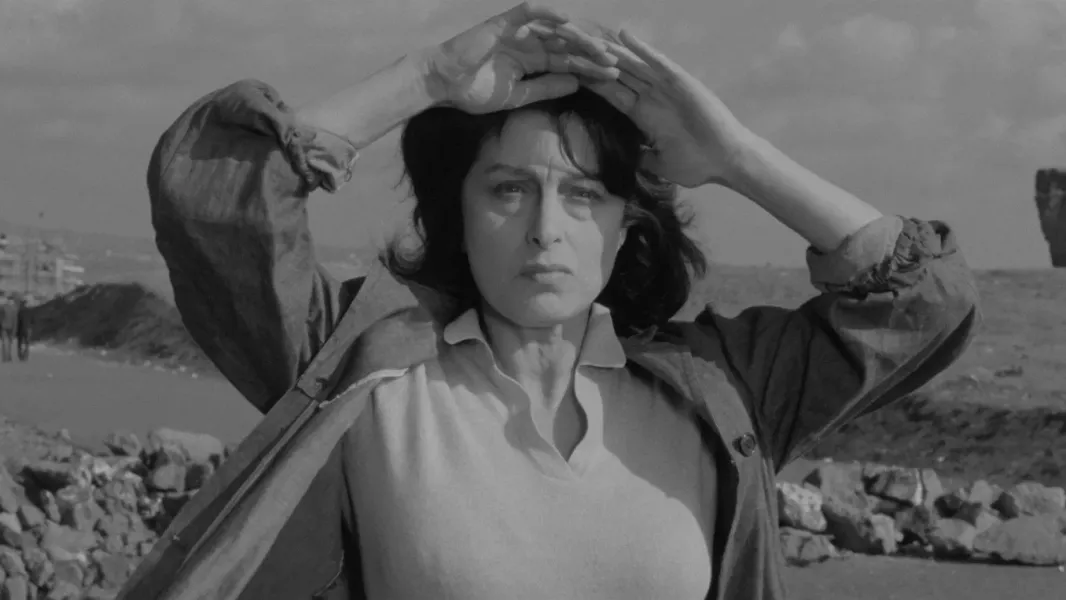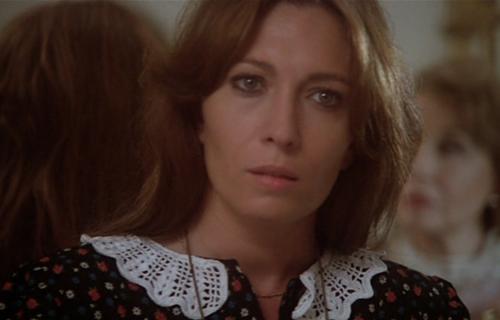
english below
Geen stad en actrice zijn zo onlosmakelijk met elkaar verbonden als Rome en Anna Magnani. De Italiaanse steractrice gaf door iconische rollen leven aan Rome en haar inwoners en wist met de iconische achtervolgingssequentie in ROMA CITTÀ APERTA (Roberto Rossellini, 1945) de doem van de Duitse bezetting als geen ander te vatten. In MAMMA ROMA verlengt Pasolini deze mythische verwevenheid van vrouw en plek door Magnani als symbool te laten staan voor het kapitalistische vagevuur van naoorlogs Rome.
Magnani speelt in de film een prostituee die ’s nachts door de straten van de metropool doolt. Op zoek naar een beter leven voor haar zoon probeert ze een andere job te vinden, maar botst steeds opnieuw op vooroordelen en weerstand van de conservatieve Italiaanse samenleving. Ondanks haar pogingen om ‘eerlijk’ haar brood te verdienen, blijft haar verleden haar achtervolgen. Ze doet er alles aan om haar 16-jarige zoon Ettore te behoeden van de gewelddadige onderwereld, maar het lot in het troosteloze Rome lijkt hen anders gezind.
In lijn met zijn politieke en thematische interesses, presenteert Pasolini in MAMMA ROMA een lappendeken aan verloren zielen, die strijden voor hun overleving in een met beton overdekte woestenij. We tonen de film als eerbetoon voor Pasolini, met oog op het 50ste jubileum van zijn dood.
Tijdens de vertoning op 11 december wordt MAMMA ROMA voorafgegaan door kortfilm STENDALI (1960) van Cecilia Mangini, waarvoor Pasolini samen met haar het scenario schreef. Deze vertoning wordt ook voorafgegaan door een lezing om 19u00 over het Italiaans neorealisme door Wouter Hessels, docent filmgeschiedenis (KASKA-DKO, RITCS, INSAS), en is gratis bij je filmticket inbegrepen.
In de vorm van onze FILM CLASS PASS kan je de vertoningen en lezingen van het hele filmhistorische seizoen aan een aantrekkelijk combitarief volgen.
MAMMA ROMA maakt deel uit van het MOMMIE DEAREST-programma, waarin De Cinema peilt naar de kracht van moeders en onze perceptie van het ‘ideale’ moederschap in cinema.
© KASKcinema/Classics Restored
ENG
The film is in Italian with English subtitles
No city or actress are as intertwined as Rome and Anna Magnani. The Italian star actress embodied Rome and her inhabitants and knew how to capture the doom of the German occupation like no other in the iconic chase scene in ROMA CITTÀ APERTA (Roberto Rossellini, 1945). In MAMMA ROMA, Pasolini uses this mythical interrelation between woman and place by having Magnani become a symbol for the capitalistic limbo that was post-war Rome.
In the film, Magnani portrays a prostitute who wanders the streets of the metropolis at night. In search of a better life for her son, she tries to find another job, but collides with prejudice and resistance of the conservative Italian society. Despite her efforts to make an ‘honest’ living, her past continues to haunt her. She does everything she can to protect her son from the violent underworld, but fate and the desolate Rome seem to be of a different mind.
In line with his political and thematic interests, Pasolini presents a patchwork of lost souls in MAMMA ROMA, who are fighting for their survival in the concrete desert of Rome. We screen the film in light of the 50th anniversary of Pasolini’s passing.
During the screening on the 11th of December, MAMMA ROMA will be accompanied by short film STENDALI (1960) by Cecilia Mangini, who co-wrote the screenplay to her film together with Pasolini. The film will also be preceded by a lecture (in Dutch) at 19h00 on Italian neorealism by film history professor Wouter Hessels (KASKA-DKO, RITCS, and INSAS) and is included in your entrance ticket.
With our FILM CLASS PASS, you can attend all screenings and lectures of the film historic season at a reduced rate.
MAMMA ROMA is part of the MOMMIE DEAREST-series, where De Cinema explores the power of mothers and our perception of the ‘ideal’ motherhood in cinema.



